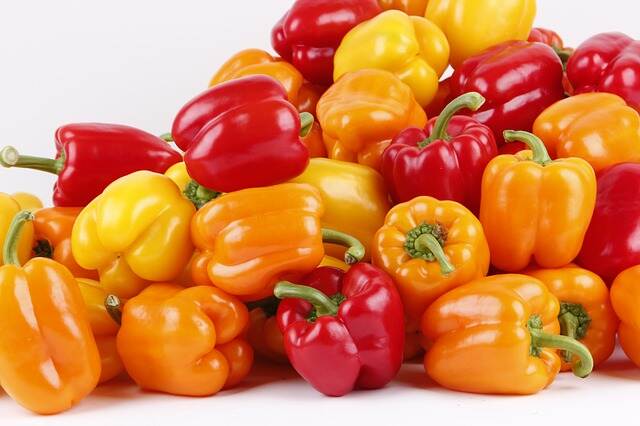ICA and APHIS reached final stage on establishing phytosanitary requirements
In 2018, Colombia exported USD 178.285,4 of fresh peppers, which represented an increase of 47,8 % in relation to 2017. In the first two months of this year, the country exported USD 22.878,3. Curaçao and Aruba are the main destinations for these exports. ICA and APHIS reached final stage on establishing phytosanitary requirements and workplan for imports of fresh peppers from Colombia.

The main producing areas of fresh peppers in Colombia are Antioquia, Santander, Norte de Santander and Valle del Cauca, while national and foreign investment in the establishment of crops in controlled environments is being promoted in La Guajira province. All these regions must prepare to meet the standards demanded by foreign markets, including now, the United States.
After receiving a request to allow imports of fresh peppers from the Colombian Agricultural Institute (ICA), the US Animal and Plant Health Inspection Service (APHIS) prepared a Pest Risk Analysis (PRA) to identify pests of quarantine significance and possible risks associated to the imports of fresh peppers from Colombia.
Based on the PRA, it was concluded that fresh pepper fruit can be safely imported from Colombia into the United States using one or more of the five designated phytosanitary measures identified in the risk management document (RMD). To that end, ICA would have to enter into an operational workplan with APHIS that defines the daily procedures ICA needs to follow to implement the measures identified in the RMD. These measures to be taken by growers, packers and shippers are summarized below and would also be listed in APHIS' Fruits and Vegetables Import Requirements database, available at https://epermits.aphis.usda.gov/manual:
• The peppers must be grown in approved places of production registered with the NPPO of Colombia.
• Pepper places of production must consist of pest-exclusionary structures.
• The places of production must contain traps for the detection of Mediterranean fruit fly (Ceratitis capitata (Wiedemann)) and South American fruit fly (Anastrepha fraterculus (Wiedemann)) both within and around the structures.
• The places of production must be inspected prior to harvest for Neoleucinodes elegantalis (Guenée), a fruit boring moth; Copitarsia decolora (Guenée), a moth; and Puccinia pampeana Speg., a pathogenic fungus that causes pepper and green pepper rust.
• If any of these pests, or other quarantine pests, are found to be generally infesting or infecting the places of production, the NPPO of Colombia must immediately prohibit that production site from exporting peppers to the continental United States and notify APHIS of the action. The prohibition will remain in effect until the Colombian NPPO and APHIS agree that the risk has been mitigated.
• The Colombian NPPO must maintain records of trap placement, checking of traps, and any quarantine pest captures. The Colombian NPPO must maintain an APHIS-approved quality control program to monitor or audit the trapping program. The trapping records must be maintained for APHIS review.
• The peppers must be packed within 24 hours of harvest in a pest-exclusionary packinghouse.
• The peppers must be safeguarded by an insect-proof mesh screen or plastic tarpaulin while in transit to the packinghouse and while awaiting packing. The peppers must be packed in insect-proof cartons or containers, or covered with insect-proof mesh or plastic tarpaulin, for transit into the continental United States. These safeguards must remain intact until arrival in the continental United States or the consignment will be denied entry into the continental United States.
• During the time the packinghouse is in use for exporting peppers to the continental United States, the packinghouse may only accept peppers from registered approved places of production.
• Each consignment of peppers must be accompanied by a phytosanitary certificate of inspection issued by the Colombian NPPO stating that the fruit in the consignment has been produced in accordance with 7 CFR 319.56-4. Consignments must be packed in cartons that are labeled with the identity of the place of production.
• Consignments of fresh pepper fruit from Colombia are subject to inspection at the port of entry in the continental United States.
• Consignments are not for importation or distribution into or within Hawaii, Puerto Rico, or any U.S. Territory.
Sources: